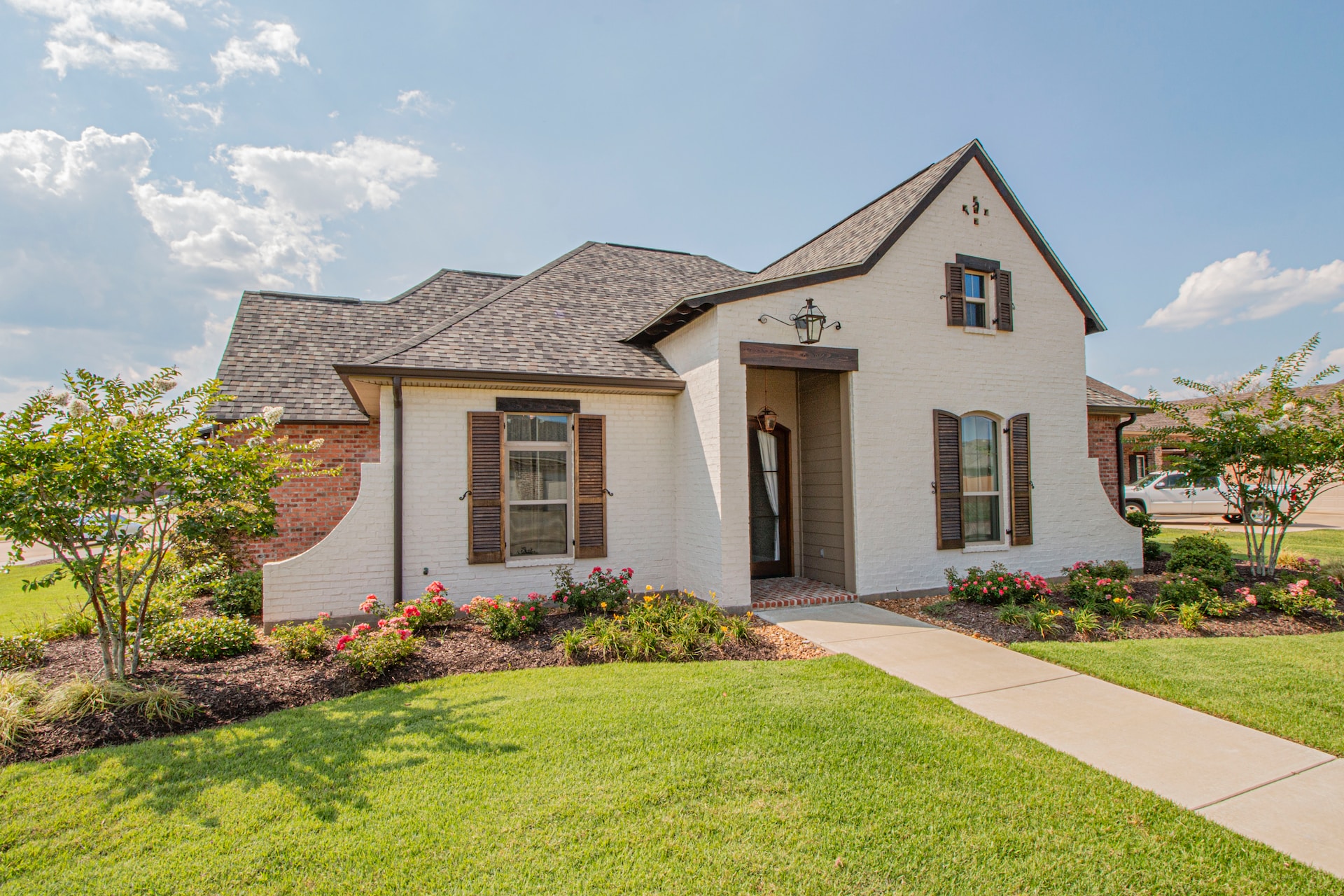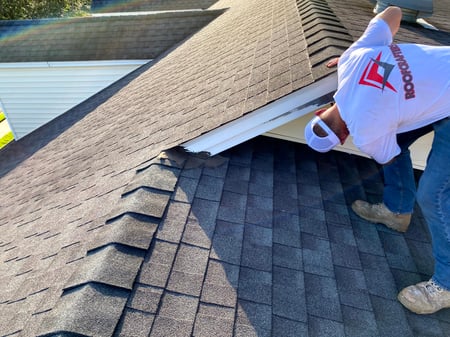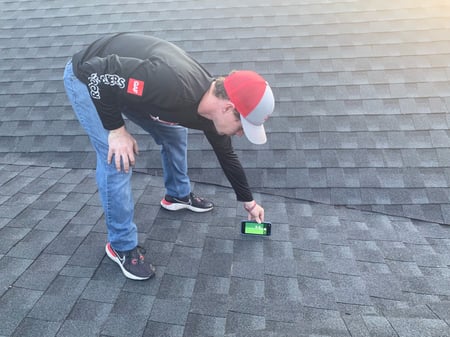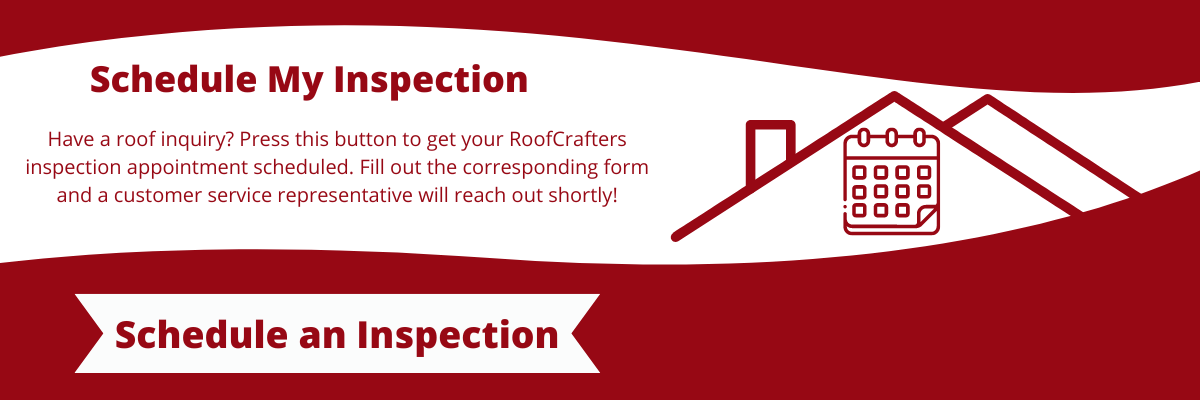
Roofing estimates vs inspections: Erm, what’s the difference? As important components of responsible homeownership, both practices serve unique purposes while contributing to the well-being and longevity of your roof. Understanding the roles of roof estimates and inspections is crucial for informed decision-making, financial planning, and the overall health of one's property. Okay, but what are they?
I’m glad you asked, patient reader. Here at RoofCrafters, we’ve been providing our beloved clientele with both roofing estimates and inspections since The Packers won the Superbowl against the Patriots in ‘97 (yes, it’s been that long), and we’re often asked what the difference is between the two roofing practices, and what role each serves in the roofing project process.
You’re in luck because we’ve had a few decades to perfect the answer we’re going to provide you with shortly. In this article, you’ll learn what exactly a roofing estimate is, as well as a roofing inspection, and what makes them different. You’ll also get a better understanding of which service you may need. So, let’s get started!
What is a Roofing Estimate?
A roofing estimate is a detailed approximation of the costs associated with a roofing project. It's typically provided by a roofing contractor to a homeowner who is considering having roofing work done. The estimate outlines the expected expenses for materials, labor, equipment, permits, and any other relevant factors that contribute to the overall cost of the roofing project.
A roofing estimate usually includes:
Material Costs: This covers the expenses for roofing materials such as shingles, underlayment, flashing, ventilation systems, and any other components needed for the project.
Labor Costs: This includes the costs of the skilled labor required to install or repair the roof. Labor costs can vary based on the complexity of the project, the type of roofing material, and local labor rates.
Additional Costs: This could encompass expenses like waste disposal, transportation of materials, equipment rental, and any special tools or machinery required for the job.
Permits and Inspections: Depending on local regulations, permits might be necessary for roofing projects. The estimate may include the costs associated with obtaining these permits and any required inspections.
Miscellaneous Costs: This may cover unexpected expenses or contingencies that could arise during the project, such as unforeseen structural issues or additional repairs that become apparent after the project begins.
Timeline: While not a cost itself, the estimate might include an estimated timeline for the project's completion. This can help both the contractor and the client plan accordingly.

It's important to note that a roofing estimate is not a final bill but rather a projection of the expected costs. It's advisable to obtain estimates from multiple contractors, compare their details, and choose a reputable contractor whose estimate aligns with your budget and requirements. Additionally, always be sure to clarify any terms, warranties, or guarantees provided in the estimate before proceeding with the roofing project.
What is a Roofing Inspection?
A roofing inspection is a thorough examination of a roof's condition, structure, and integrity. It is typically conducted by a professional roofing inspector or contractor to assess the overall health of the roof, identify any existing or potential issues, and determine whether repairs or maintenance are needed.

Roofing inspections are important for several reasons:
Detecting Problems: Inspections help identify any issues with the roof, such as leaks, damaged shingles, deteriorating flashing, or structural problems. Detecting these problems early can prevent further damage and costly repairs down the line.
Maintenance Planning: Regular inspections allow homeowners to plan and schedule necessary maintenance tasks. This proactive approach can extend the lifespan of the roof and prevent more significant issues from arising.
Insurance and Warranties: Many insurance policies and roofing warranties require regular inspections to maintain coverage or warranty validity. Having a documented history of inspections can be crucial in case of a claim or warranty claim.
Home Value: A well-maintained roof can enhance the value and curb appeal of a property. A history of regular inspections and maintenance can be a selling point when putting a home on the market.
What Happens During a Roofing Inspection?
During your roof inspection, you can anticipate on:
Visual Examination: The inspector will visually assess the roof's surface, looking for signs of damage, deterioration, or wear and tear. This includes inspecting shingles, flashing, gutters, vents, and other roofing components.
Interior Inspection: In some cases, the inspector may also check the interior of the building, especially if there are signs of leaks or water damage. This can help pinpoint the source of the problem.
Structural Assessment: The inspector may assess the overall structural integrity of the roof, looking for sagging, unevenness, or signs of structural issues.

Identification of Issues: Any issues or potential problems will be documented, and recommendations for repairs or maintenance will be provided.
Report and Recommendations: After the inspection, the roofing professional will provide a detailed report outlining their findings, including photographs and descriptions of any issues identified. They may also provide recommendations for repairs or further actions.
It's generally recommended to have a roofing inspection performed at least once a year, and more frequently if the roof has experienced severe weather events or if it's aging. Professional roofing inspectors or reputable roofing contractors are well-equipped to conduct thorough and accurate inspections to ensure the ongoing health and performance of your roof.
Do I Need a Roofing Estimate or an Inspection?
As you now know, a roofing estimate focuses on estimating the financial costs of a roofing project, while a roofing inspection focuses on evaluating the current condition of the roof and identifying any problems or potential areas of concern. Both processes are important in ensuring the overall health and performance of a roof, especially in terms of making informed decisions about necessary repairs or replacements and managing the financial aspects of roofing projects.
So, how do you choose between the two? Well, to maintain your home insurance coverage, it's crucial to conduct routine annual roof maintenance, which includes roofing inspections. However, if you're aware of visible damage, like torn shingles after a storm, obtaining an estimate for repairs and subsequently filing a claim with your insurer post-repairs is advisable. It's important to note that an estimate doesn't serve as preventive maintenance; that role is fulfilled by inspections.
Regular inspections ensure that small problems are nipped in the bud, preventing them from evolving into large-scale issues. Estimates, meanwhile, equip homeowners such as yourself with the knowledge needed to make financially sound decisions when it comes to repairs, replacements, or renovations. If you’re due for your bi-yearly maintenance, or you’re unsure if your home requires an estimate instead, be sure to hit the “Schedule an Inspection” button down below, and one of our experts will speak with you as soon as possible to jump-start your roofing project needs!
My name is David Toth and I am the lead estimator in North Florida with RoofCrafters Roofing. Originally from New Brunswick, I have called Florida home for the past 47 years. I enjoy cooking along with traveling to different historical areas in Florida when I have free time.



